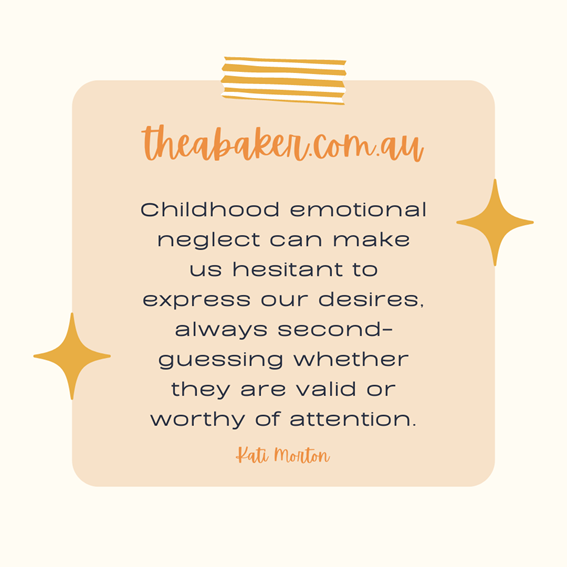Being overly-responsible – an impact of childhood emotional neglect
Being overly-responsible – an impact of childhood emotional neglect
Often conversations about psychological trauma focus on things that have happened or been done to us. People often say to me versions of, “I didn’t experience anything traumatic in my childhood, nothing bad happened to me” and they usually go on to explain that they weren’t sexually abused or kidnapped and they had enough food, clothes and even family holidays. Emotional neglect though has nothing to do with what your parents or caregivers did to you, it’s about what they failed to do for you.
Our feelings (or emotions) are a vital part of our human experience and if they go unacknowledged when we’re children we can end up confused or disconnected from our ‘SELF’ (if you missed the recent blog exploring what we mean by ‘SELF’ click HERE). When our feelings aren’t acknowledged or because of the way we were parented we learned that our emotions were ‘too big’ or somehow unacceptable to our parents we learn very early (before we have awareness that it is happening) that our feelings don’t matter. Where we grow up in emotionally neglectful families, we tend to grow up believing that we are less valid or important than other people and can over-focus on other people’s needs instead of our own. One of the most significant impacts of this is kind of emotional neglect is a strong sense of responsibility for other people and their feelings, and many clients that I work with have very busy protective parts whose job is to ‘be responsible’.

There are four themes that connect emotional neglect and this deep sense of responsibility:
- Being highly competent – it’s easier to do than it is to feel. These responsible parts believe it’s their duty to be efficient and protective – regardless of its personal impact.
- External focus – our emotions are an inside experience, and when we have experienced emotional neglect won’t find feelings easy or comfortable to navigate so likely will focus our attention outside of us. The message here is ‘focus on others and take care of practical matters. I don’t matter.’
- Neglecting our own feelings and needs – we do what we have been taught in early childhood by our parents – they showed us that our feelings don’t matter and so we act as if our feelings don’t exist. This is why so many people struggle to identify who they really are in their core – who is ‘SELF’? If we aren’t guided by our feelings we might struggle to identify what our passions are, what we like and dislike. We are left with a pervasive sense of not knowing what we want, or what we feel so we make sure everyone else is attended to.
- Feeling like you’re not enough – when our parents acknowledge and validate our feelings, we feel heard, seen and understood. But the opposite is also true, leading to a sense of not being enough in relationships.
With all the focus on other people, their feelings and needs and an eagerness to help / support others ahead of ourselves leads to this overdevelopment of responsibility. People who have experienced emotional neglect feel responsible for others comfort, happiness, success, and health. It’s a completely unbalanced dynamic in relationships (making it harder to sustain and maintain them) and can play a role in burn-out for over-responsible people.
In addition to the kind of parts work therapies I’ve flagged in previous blogs, and in conjunction with approaches like EMDR, there are a few practical steps we can take to being less responsible:
- Turn attention inward – first up we need to learn to tune into our feelings and needs. This will probably be super tricky to start with because being so unused to it, we might find ourselves overwhelmed with what really is going on inside. Plus, we’ve got to find the language for feelings and needs which we never learned as children. This is where working with a therapist can be helpful to guide us and be with us as we experience our feelings and needs.
- Prioritising ourselves – this starts with learning that we are primarily responsible for ourselves above all others. Usually, we might work with small changes – prioritising our basic needs like getting food and drink when we feel hungry or thirsty, or going to the toilet when we first notice the urge instead of ignoring our body’s signals.
- Set boundaries – this one always causes us a few challenges because belief in our capacity to set and maintain boundaries is usually low. Boundaries are healthy – they say that our feelings and needs matter.
If you’d like to explore your relationship with responsibility and would like a safe space to talk about how they may impact your mental health, please get in touch with us: www.theabaker.com.au / hello@theabaker.com.au / 03 9077 8194.
